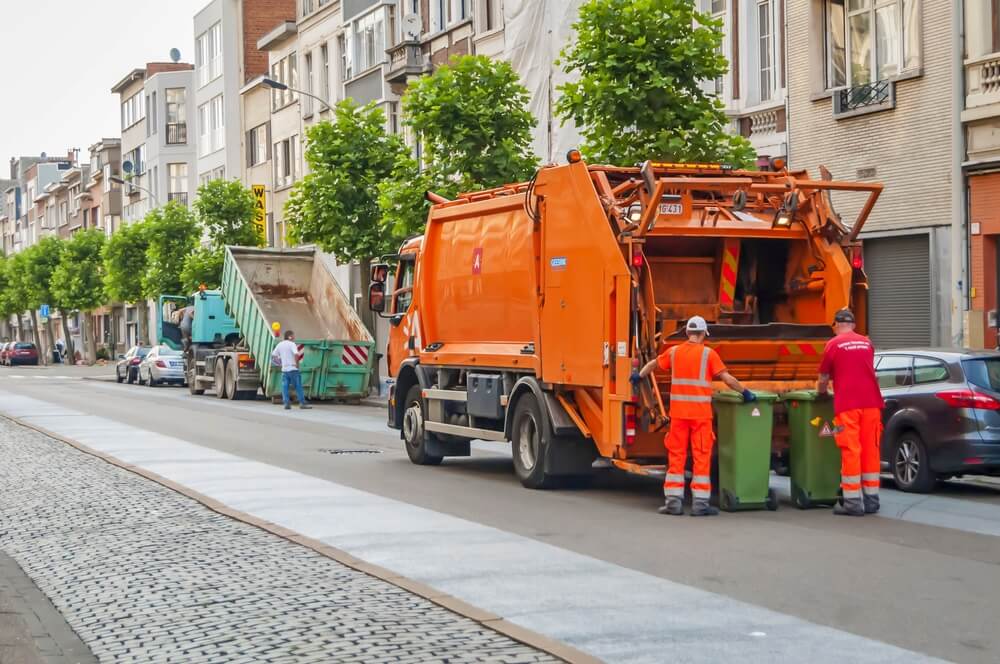
Smart Waste Journal
Join a growing community of industry leaders and eco-conscious businesses committed to making smarter choices for the environment and their bottom line.
The Ultimate Guide to Reducing Annual Waste Spending
According to theGlobal Waste Management Outlook 2024 Report, the total direct and indirect costs of negligent waste management in 2020 reached a staggering $361 billion. It is important to note that these “indirect” costs of waste management, e.g., pollution and climate change, are in fact a direct cost to society, human health, and the environment. Businesses, such as yours, have a huge influence on these numbers, and paying attention to your own spending is the perfect place to start. Not only does it benefit your financial performance, but...
Read MoreWhat Are Integrated Waste Management Systems and How They Can Benefit Your Business
Waste management has long been a focus for businesses looking to streamline operations, cut costs, and show environmental responsibility. Traditional approaches to waste management aren’t all encompassing and fail to include the full scope of generation to disposal. Enter Integrated Waste Management Systems (IWMS). Utilizing an IWMS optimizes every stage of waste handling and further combines it with advanced technology, smarter strategies, and compliance with environmental policies. As a result of this technique, IWMS provides businesses with...
Read MoreInnovative Waste Solutions to Boost Your Business’ Bottom Line
Effective waste management is no longer just about ticking off a box for compliance; it has become a practical and strategic way for businesses to cut costs while meeting sustainability goals. By revisiting how waste is handled, companies can uncover opportunities to save money, operate more efficiently, and reduce their environmental footprint.
This blog explores innovative waste management practices that can transform how businesses operate. From advanced technologies to employee involvement, these strategies empower organizations to...
Read MoreNavigating Government Mandates for Waste and Recycling Compliance
When it comes to waste and recycling management, businesses face a growing set of government mandates designed to ensure a cleaner, more sustainable environment. Yet, managing compliance is not just about avoiding hefty fines—it's also an opportunity to improve operational efficiency and demonstrate corporate responsibility.
In this blog, we will break down what waste compliance entails, offer practical tips for ensuring compliance, and explore how technology and innovation are reshaping waste management.
...
Read MoreAchieving Your Sustainability Goals: A Comprehensive Guide
The call for sustainability is growing louder each day. Businesses worldwide are recognizing the importance of sustainable practices, not just for the planet but for their bottom line, too. With climate change knocking on our doors and resources dwindling, integrating sustainable practices is no longer optional. This guide will walk you through the practical steps to achieve meaningful sustainability goals for your business.
Read MoreHow to Minimize Landfill Waste and Lower Associated Costs
Landfill waste has become an increasing concern as communities grapple with the mounting environmental issues and burgeoning operational costs associated with waste management. The accumulation of waste in landfills significantly impacts ecosystems, contributing to soil contamination, greenhouse gas emissions, and loss of biodiversity.
Meanwhile, the financial ramifications for businesses are palpable, as waste disposal fees and regulatory compliance costs continue to climb. Effective waste reduction strategies are crucial for addressing...
Read MoreMaximizing Income Streams Through Effective Recycling
Today, the search for innovative methods to generate income while conserving resources has become more significant than ever. A traditional approach to addressing these needs has been the practice of recycling, often viewed through the lens of its environmental benefits.
However, recycling extends beyond this, presenting itself as a strategic opportunity for both businesses and individuals. By incorporating recycling practices effectively, not only can we contribute to environmental preservation, but we can also discover new avenues for...
Read MoreYour Guide to Medical Waste Management Companies
In healthcare, dealing with medical waste properly is super important for keeping everything running smoothly. It’s not just about following the rules; it’s a big responsibility that affects whole communities, not just hospitals. If waste isn’t managed well, it can put the health and safety of the public and the environment at risk. Teaming up with the right medical waste management companies can help healthcare providers tackle these important issues.
But finding the right partner can be tricky since there’s a lot to learn. This guide...
Read MoreTop Strategies to Reduce Your Waste Management Expenses
As waste management expenses rise, businesses face financial pressure that impacts both profitability and sustainability efforts. However, reducing waste management expenses presents an opportunity for significant savings and demonstrates commitment to environmental responsibility, attracting eco-conscious customers. By adopting efficient waste-reduction strategies, companies can enhance their financial stability while contributing to a greener planet. The following sections will outline practical strategies to effectively manage waste fees ...
Read MoreReducing Food Waste: Practical Tips for Households and Businesses
Food waste is an escalating challenge that affects not only the environment but also the economy and society at large. Every year, vast amounts of uneaten food are discarded, filling landfills, contributing to greenhouse gas emissions, and squandering the resources used to produce, transport, and store that food.
At both household and business levels, reducing food waste can lead to significant benefits. For one, it results in cost savings; by utilizing food more efficiently, consumers can lower their grocery bills and businesses can...
Read More.png?width=320&height=80&name=CERTIFIED%20Waste%20Solutions%20Logo%20Vector%20NO%20Tagline%20(4).png)
.jpg)
.jpg)
.jpg)
.jpg)
.jpg)
.jpg)
.jpg)
.jpg)
.jpg)
.jpg)


.jpg)